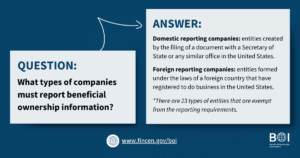The Tax Cuts & Jobs Act of 2017 (TCJA) provided for increased gift and estate tax exclusion amounts from 2018 through 2025, more than doubling the prior lifetime exclusion per individual. However, these taxpayer-friendly provisions are set to sunset shortly, and the basic exclusion amount is due to revert back to pre-TCJA levels in 2026. Although this change could raise concern for individuals looking to gift their wealth or leave assets to family upon death, understanding how gift and estate tax provisions may change and engaging qualified consultants can help mitigate tax exposure and enforcement risk in gift and estate planning.
What Consequential Provisions Are Specifically Changing?
As noted above, the sunsetting lifetime gift and estate tax exclusion is the most impactful change to consider. For 2024, the lifetime exclusion for gift and estate tax is $13.62 million, meaning that until an individual’s lifetime gifts in total reach $13.62 million (in excess of annual exclusions, which do not count toward the lifetime exclusion), gifted assets are not taxable for gift and estate purposes. With the sunset of the increased exclusion scheduled for December 31, 2025, individuals should expect the exclusion beginning January 1, 2026, to be approximately $5 million, adjusted for inflation. This major reduction in the exclusion amount could create significant tax exposure for individuals with a high net worth. There is legislation currently in progress that proposes extensions of some provisions scheduled to sunset (see related post). However, if and when this legislation may be enacted, and what additional changes may occur after the 2024 election are only speculation.
I Own a Business – What Other Factors Might Impact My Estate Planning Strategy?
In addition to the anticipated sunset of the increased lifetime gift and estate tax exclusion, business owners should consider the impact of economic conditions on the valuations of their businesses, specifically increased risk of investing seen across the market. It would not shock any business owner to hear that the cost of operating a business is higher now than it was a couple of years ago. For example, the interest rate on a 20-year U.S. Treasury Bond (also known as the “risk free rate”) has increased more than two points from December 2021 to December 2023. In this environment with increased interest rates, the cost of acquiring capital is more expensive than pre-pandemic levels, which ultimately increases the risk of investing.
Keeping all other valuation variables constant, higher risk of investing results in a lower value, as an inverse relationship exists between the cost of capital and the value of a business. Additionally, factoring in the impact of COVID-19 disruptions and heightened inflation could increase risk further and favorably impact valuations for gift and estate purposes, as a lower valuation could lead to reduced tax exposure and efficient use of the lifetime exclusion.
One final item to consider is the increased funding being allocated to IRS enforcement. Over the next decade, nearly $46 billion will be allocated solely to improve IRS enforcement efforts, which could increase the quantity of gift and estate tax return examinations. (see related post) The IRS has a three-year window to examine your gift or estate tax return and assess additional liability after it is due. Taxpayers who are concerned about increased IRS scrutiny over returns should consider making gifts and reporting them to the IRS sooner, rather than later.
Who Should I Consult to Discuss Plans to Accelerate Gifting My Business Ownership Interest?
When planning to gift a business interest, one should engage the services of legal counsel, a tax professional, and an accredited valuation professional, at the minimum. When seeking a valuation professional, selecting a valuation analyst with credentials, such as the ASA, CVA or ABV, is imperative. Credentialed professionals are required to conduct their work in accordance with professional standards that govern independent valuation engagements and will apply commonly-accepted and sound valuation methodologies that meet IRS standards.
If you and/or your advisors need assistance with gift or estate valuations, please reach out to the GYF Business Valuation Services Group at 412-338-9300.






